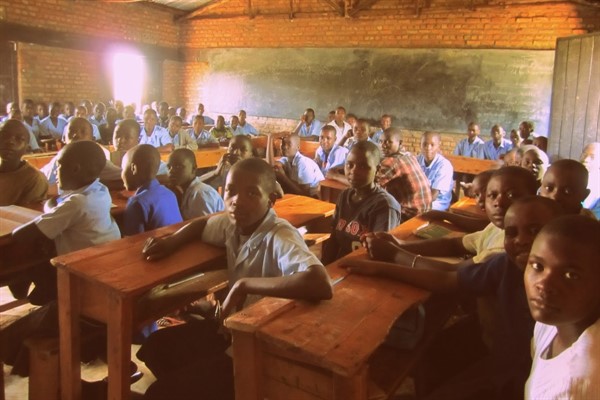Children in Rwanda finally started heading back to school last fall, after months of learning from home. It was a bit of bright news for the country, given that schools had been closed since March due to the coronavirus pandemic. But now, many students are facing a brand-new challenge: Having to learn in an unfamiliar language.
Rwanda’s government has begun implementing a controversial language change that requires all primary schools to instruct their students in English, rather than in Kinyarwanda, the national language spoken by nearly everyone in the country. However, only 38 percent of the primary school teachers who are affected by the change know English, while even fewer of their pupils do. A 2018 evaluation of the English abilities of third graders found only 16 percent of them to be proficient. These figures are likely much worse outside the capital, Kigali, in rural areas where most families live.
The government first announced the change in December 2019. Due to the subsequent coronavirus lockdown, teachers haven’t received much training in English. But even if they had, it is unreasonable to expect teachers to be comfortable enough with a new language of instruction in a matter of months.

